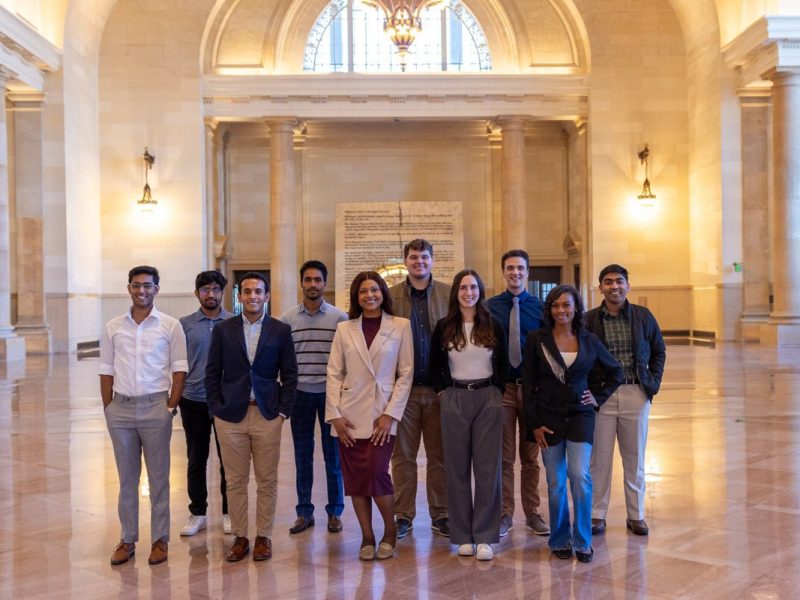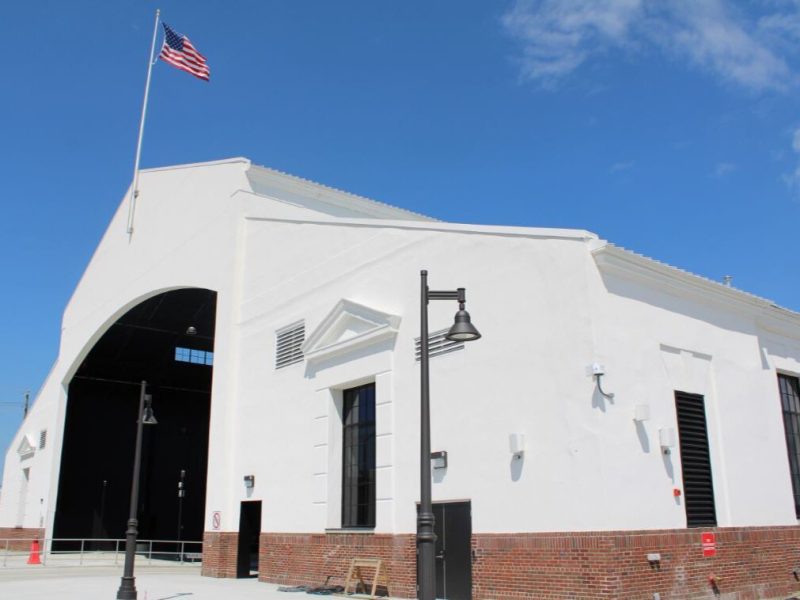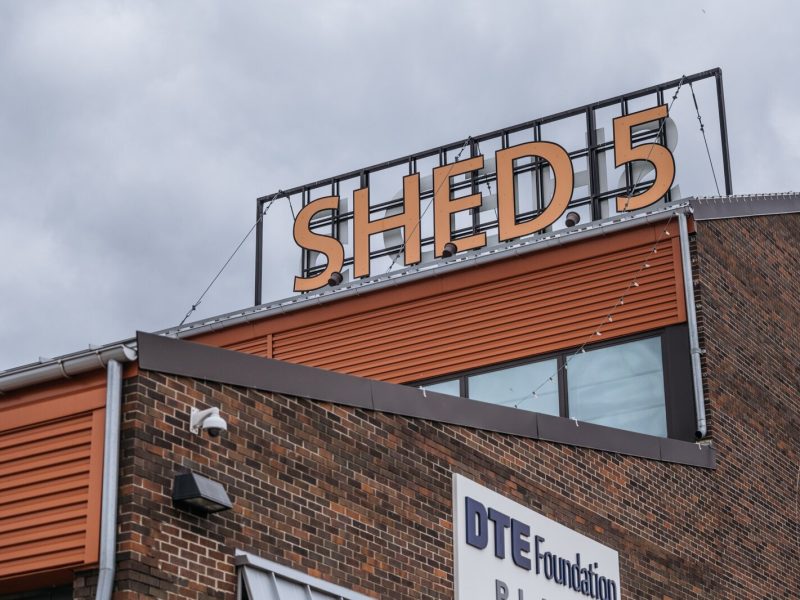What is the North End? An overview of the latest On the Ground neighborhood
To introduce the latest "On the Ground," series editor Imani Mixon provides a brief overview of the the people, history, and geography of the neighborhood she'll be covering: the North End.
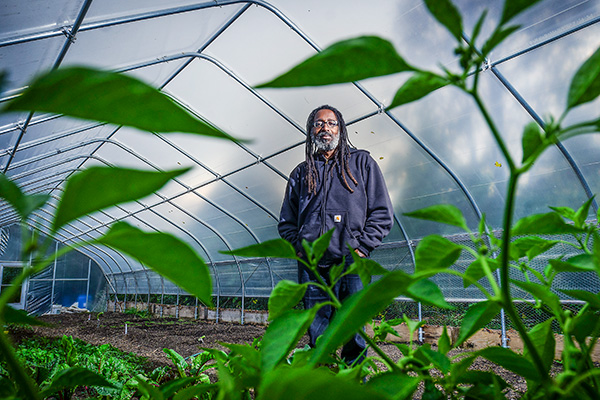
The North End may be the most famous neighborhood you’ve never heard of. Though that likely depends on your age, and how familiar you are with its importance to the city’s music history.
Loosely bounded by I-75 and Woodward Ave. to the east and west, and Webb St. and E. Grand Boulevard to the north and south, the North End shares borders with New Center, Highland Park, and Hamtramck. It’s experienced trying times, especially in the aftermath of the 2008 housing crisis, but slowly gotten back on its feet on the strength of its community leadership.
That includes people like Malik Yakini, executive director of the Detroit Black Community Food Security Network (DBCFSN), who is opening a People’s Food Co-op on a vacant site at Woodward Avenue and Euclid Street. The 7,500 square foot, cooperatively-owned grocery store will share space in a 30,000 square foot building that will be part community gathering space, part incubator kitchen, and hold staff offices for the DBCFSN.
“The important thing is that it’s cooperatively owned,” says Yakini, “so rather than somebody else coming into the community and owning it and extracting its profits, when the store is profitable the owners get a share of those profits.”
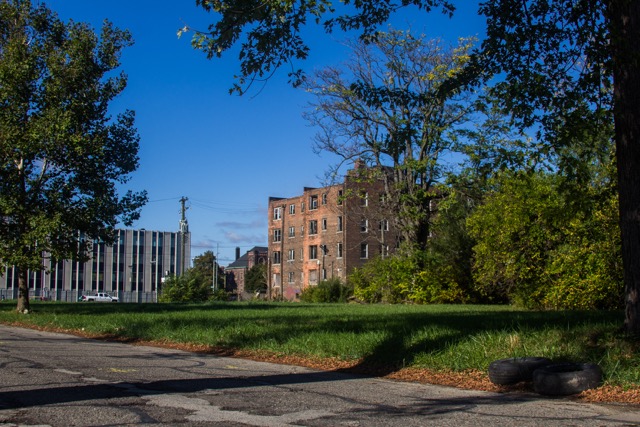
Since 2006, this collectively led organization has dedicated its efforts to educate and enrich Detroit communities that need it. Locations for its programs are carefully selected using a need-based model. The North End was an obvious choice to serve as its anchor since it only has one grocery store and is centrally located.
“We want to be on the main avenue making a statement by having a black-run food co-op,” says Yakini, “and promoting the idea of cooperative ownership and cooperative economics as a challenge to the kind of development that’s happening in downtown and Midtown.”
But given that development in the urban core, the North End could undergo significant changes in the coming years. Transit-oriented developments like the QLine (whose terminal stop is at Grand Boulevard), protected bike lanes, and MoGo bike share stations, have all reached the North End. Skyrocketing property values in Midtown and downtown, have made the neighborhood a desirable place to rent or buy property for newer, more affluent residents of the city.
The question at the forefront of the minds of North End residents is whether they’ll have a say in the future course of their neighborhood—it’s a topic that comes up again and again.
For example, during a recent transit-oriented development meeting at Mt. Carmel Baptist Church in the North End featuring city planning representatives, Linda Campbell, a member of Detroit People’s Platform, was concerned that the trend in cities of expanding transit options would ultimately have a negative effect on low-income residents.
“This would be an exception if what is being proposed didn’t result in displacement,” she said.
History
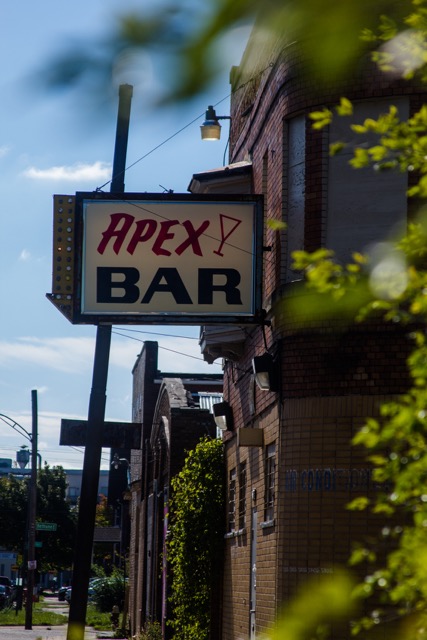
The reason why longtime Detroiters are likely to be familiar with the North End is because of its once-thriving music scene. The Phelps Lounge and Apex Bar hosted some of the most famous soul and R&B acts of all time, including James Brown, Etta James, George Clinton and The Parliaments, and numerous Motown groups. It’s also the birthplace for Motown icons like Diana Ross, Aretha Franklin, and Smokey Robinson.
Because of its accessibility to everywhere else in the city, the North End has traditionally been a desirable place to live.
“All the way back in the 1900s, the North End was Detroit’s first branded neighborhood,” says Pamela Martin, president and CEO of Vanguard CDC, a development nonprofit based in the North End. “The North End became the aspirational neighborhood, the moving on up neighborhood. It has a distinctive flair because it is a proud neighborhood.”
Around the time of the Great Depression, the neighborhood had a large Jewish population, welcomed a wave of black families from the south during The Great Migration, and withstood the economic loses of the recession.
Housing and development
The North End was once a farming community, and this is reflected in its housing stock which is a blend of of farmhouses and bungalows, many of which are over 100 years old.
A wave of demolitions of abandoned houses created pockets of empty lots. Locals have taken advantage of the side-lot program facilitated by the Detroit Land Bank, which allows property owners to purchase an adjacent vacant lot to their property for $100.
But many in the North End struggle with maintenance and repair of their houses, which have aging infrastructure. It’s difficult enough just to stay afloat in the face increasing property taxes and water drainage fees.
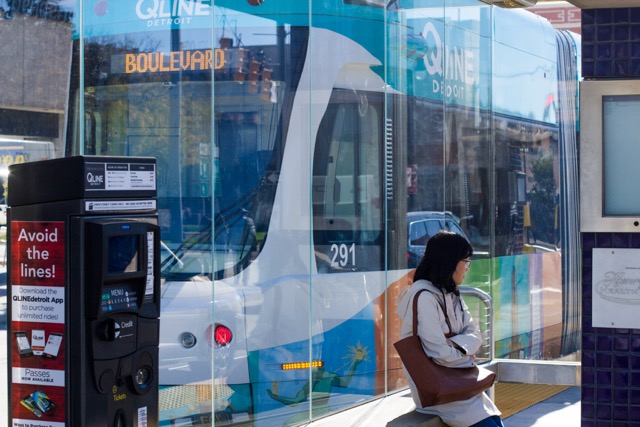
Halima Cassells is a native Detroiter and 3rd generation North End resident who moved back to her grandparents’ four-family home which she describes as, “not shiny, not nice, but the best.” After a stint in New York, Cassells returned to her hometown to raise her daughters and immediately noticed that the neighborhood was changing.
“There are a couple of buildings where there are people who don’t speak to neighbors and their license plates are from one coast or the other and I don’t want to encourage that,” Cassells says. “I want people to come here because they either are a part of something, or want to be a part of something.”
Many important neighborhood anchors lie along Oakland Avenue, which used to be a thriving commercial corridor, including ONE Mile Detroit, Red Door Digital, and the Oakland Avenue Urban Farm.
Today, the North End is a predominantly black, low-income community. For those who stuck it out, the neighborhood is more than an advantageous real estate destination—it’s a community of people working to protect their origin and identity.
Looking forward
For many years, these kind of changes and outside attention seemed unfathomable for a charming, aging neighborhood that managed to stay off of the radar. The North End community is concerned with losing their space, place, and voice in the recent push to reimagine their neighborhood. What appear to be beneficial opportunities on the outset are sometimes viewed by residents as exclusionary incentives that privilege outside investors over the people who have been here.
The neighborhood is not shy about the communal desire to develop a visible platform and vision, so they can share their ideas when the city is ready to listen. We’ll be telling you more about that vision in the coming weeks.
This article is part of the “On the Ground” series, where a journalist is embedded in a neighborhood for three months to provide regular coverage.
Support for this series is provided by the Kresge Foundation.
All photos, except where mentioned, by Bree Gant.

